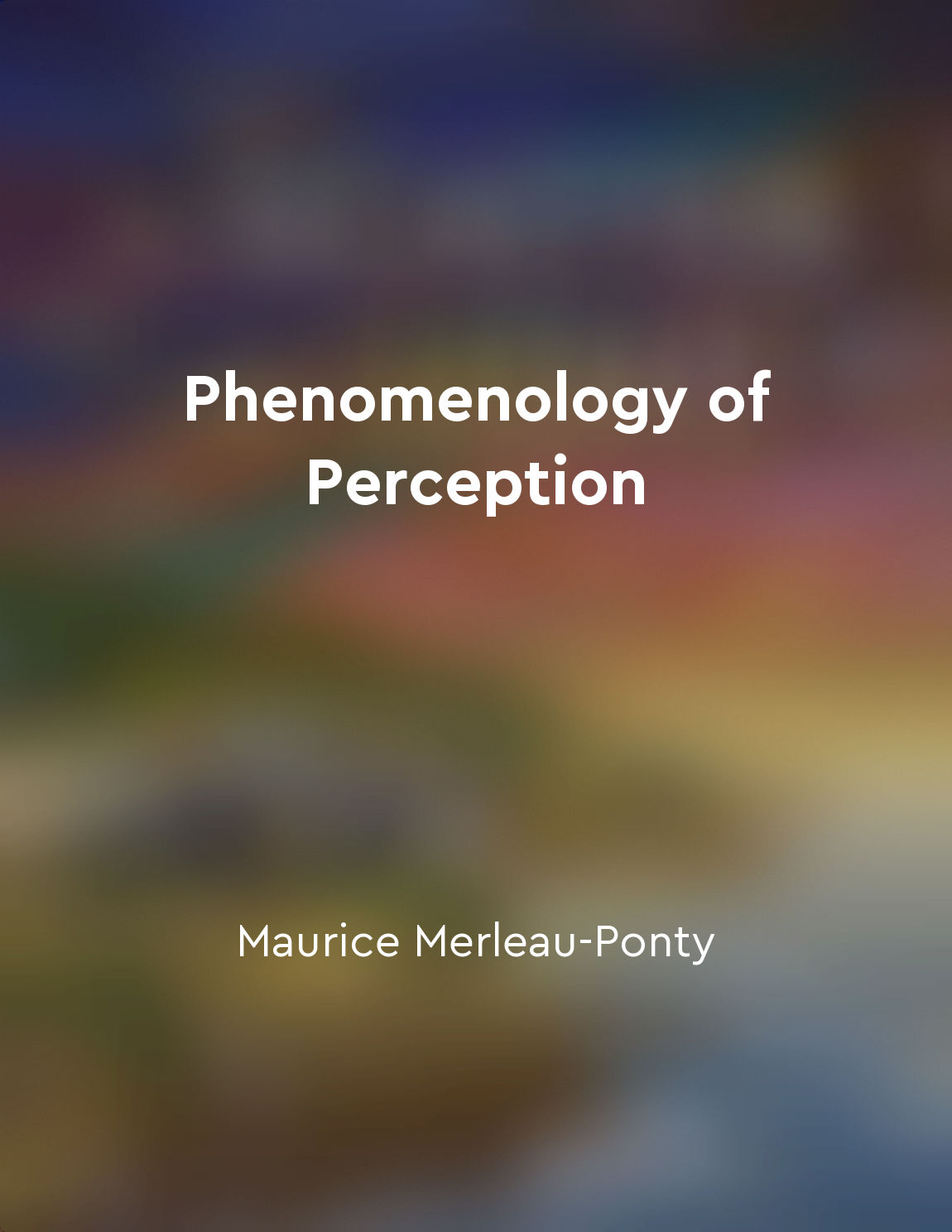Reality of Substance from "summary" of The Problems of Philosophy by Bertrand Russell
The concept of a "Reality of Substance" is a complex one that has puzzled philosophers for centuries. This idea suggests that there is a fundamental, underlying reality that exists independently of our perceptions or experiences. In other words, there is a substance that underlies all of the objects and phenomena we encounter in the world. This notion of a reality of substance has been a central concern in metaphysics, the branch of philosophy that deals with the nature of reality. Philosophers have debated whether such a substance exists, and if so, what it might be like. Some have argued that the reality of substance is a physical substance, something material and tangible that exists in the world. Others have suggested that the reality of substance is a more abstract or spiritual substance, something beyond the physical world that gives objects their essential nature. Still, others have questioned whether a reality of substance exists at all, arguing that all we can know are our perceptions and experiences, rather than some underlying reality. Bertrand Russell, in his work "The Problems of Philosophy," explores these questions in detail. He examines the arguments for and against the reality of substance, considering the implications of each position. Russell is known for his clear and logical reasoning, and he brings these qualities to bear on the concept of a reality of substance. Russell considers the idea that there may be a substance underlying all of our experiences, something that gives unity and coherence to the world. He also acknowledges the challenges and limitations of this idea, pointing out the difficulties in proving the existence of such a substance.- Russell's exploration of the reality of substance raises profound questions about the nature of reality and our place in it. While he does not provide definitive answers to these questions, his analysis sheds light on the complexities and uncertainties that surround this concept. By grappling with these issues, Russell invites readers to think critically about the nature of reality and to consider the implications of the existence (or non-existence) of a reality of substance.
Similar Posts
Jason wakes up in a world that is not his own
Jason wakes up in a world that is not his own. The realization hits him like a punch in the gut. Everything is familiar yet dif...
Categorical imperative guides moral decisions
The categorical imperative, according to Kant, is a fundamental principle that guides moral decisions. It is not based on any c...
The quest for equality and human rights led to social and political movements
The struggle for equality and the recognition of human rights have been driving forces behind some of the most significant soci...

The body is a continuous source of meaning
Merleau-Ponty asserts that the body is not merely a physical entity but a dynamic source of significance that continuously shap...
Metaphysics challenges traditional assumptions
Metaphysics, as a discipline, disrupts the conventional frameworks within which we make sense of the world. It challenges the p...
Humans cannot know the ultimate causes of things
It is a common belief among humans that they are capable of understanding the causes of things. They often seek to uncover the ...
Antinomies demonstrate the limits of reason in abstract concepts
In the realm of metaphysics, reason often seeks to understand abstract concepts that lie beyond the scope of empirical observat...

